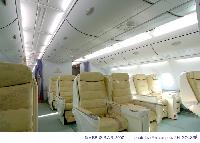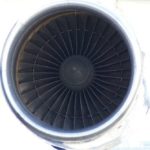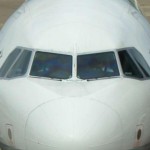Airbus has won two Crystal Cabin Awards at this year’s Aircraft Interiors Expo in Hamburg, Germany for two cabin system innovations it has developed.
Airbus‘ Universal Wireless Backbone System won the award in the entertainment and communication category and it’s sustainable environmentally friendly fire suppression concept received the Judges Commendation Prize.
Universal Wireless Backbone System
Universal Wireless Backbone System (UWBS) is a single platform on which different wireless applications can be installed to offer a broad range of passenger services. UWBS will enable airlines to extend the range of wireless cabin services and is the only connectivity solution available for both new aircraft and as a retrofit. This innovative system is capable of using both current and future wireless communication standards. This means UWBS will bring cost savings for both the operations and maintenance of the aircraft.
For passengers the UWBS solution offers a very wide choice of services by enabling the use of multiple wireless connections, such as wireless LAN standards, mobile telephony or personal devices.
Airbus‘ UWBS is based on a radio frequency (RF) combiner unit and „Leaky Line“ antennas. The „leaky line“ antenna is an innovative design by Airbus and is able to receive and transmit data, providing a uniform signal distribution throughout the cabin and guaranteeing highly reliable wireless communication links.
Sustainable environmentally friendly fire suppression concept
Today’s traditional fire suppression systems are based on halons. They offer a high fire suppression effectiveness in combination with low system weight and low complexity. However, in response to the negative impact of halons on the stratospheric ozone layer, Airbus has continuously replaced halon-based applications in the last years. However for certain applications – such as cargo bay fire protection – where safety-requirements are the highest, developing a halon-free substitution system posed many challenges.
The new Airbus solution offers a sustainable environmentally friendly concept that uses a waste product of a fuel cell system – its exhaust. Fuel cell systems, if operated with ambient air, produce nitrogen-enriched air that can be utilised to build up an inert fire suppressing atmosphere inside an aircraft cargo hold. The concept meets future regulatory requirements and reduces the impact of aviation on the environment. It combines cost-effectiveness with an uncompromising commitment to safety and the environment.
Airbus is fully committed to ensuring that air travel continues to be one of the safest and most eco-efficient means of transportation. Environmental, health and safety (EHS) considerations have long been an integral part of its activities at all levels of the company, and are a key priority in the development of all new techniques, products and processes.
Photo: Airbus S.A.S. 2007 ©







